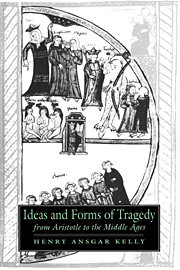Conclusion
Published online by Cambridge University Press: 22 September 2009
Summary
Nowadays “tragedy” is one of those words that everyone thinks everyone else knows about and has always known. That is to say, it is commonly thought that the term conjures up a fairly uniform idea, an idea that has been relatively constant throughout the ages, give or take various refinements of theory. I trust that the above history of the word has shaken this belief. We have seen that in ancient Greece tragedies could, and often did, end happily, and that this eventuality was integrally incorporated into the analysis of Aristotle, who produced the first poetics and critique of tragedy (to use Lubomír Doležel's distinction between descriptive and prescriptive accounts): Euripides's fortunately resolved Iphigenia Among the Taurians vies with Sophocles's disaster-bound Oedipus the King for his choice of all-time best tragedy. The conclusion in irretrievable misfortune came to dominate and control the semantic field of tragedy in later antique times, when tragedy took various forms on and off the stage, and in applications to events or characteristics perceived as belonging to “the tragedy of life.” But it could stand for bombast as well as disaster, and happy endings could still be seen in practice: Dracontius's Tragedy of Orestes ends with as tranquil a resolution as Aeschylus's Oresteia. The exitus tristes of Diomedes, moreover, did not have to end in total disaster for the protagonist: there could be a pyrrhic victory or even a triumph of revenge, as in Seneca's Medea.
- Type
- Chapter
- Information
- Ideas and Forms of Tragedy from Aristotle to the Middle Ages , pp. 218 - 222Publisher: Cambridge University PressPrint publication year: 1993



